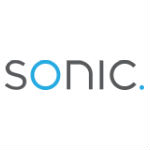 Several communities in the San Francisco Bay area will be getting gigabit service from Sonic, a local Internet service provider best known outside its home turf for two things: It’s the company that in 2011 built a gigabit test network for Google Fiber at Stanford University. And it has the distinction of offering what Sonic.net marketing head Tara Sharp in an interview said is the lowest pricing on gigabit service in the U.S.
Several communities in the San Francisco Bay area will be getting gigabit service from Sonic, a local Internet service provider best known outside its home turf for two things: It’s the company that in 2011 built a gigabit test network for Google Fiber at Stanford University. And it has the distinction of offering what Sonic.net marketing head Tara Sharp in an interview said is the lowest pricing on gigabit service in the U.S.
Sonic.net charges $40 for gigabit and voice service – a price point Sharp said enables the company to set some high take rate targets for its service before making the decision to build in an area.
“We’re expecting a minimum of 50% — more realistically 75%,” said Sharp.
Sonic.net Gigabit
Sonic.net has been offering Internet service for 20 years, serving most customers using DSL service delivered over unbundled loops from incumbent carrier AT&T. The company has decided to deploy its own fiber infrastructure to support gigabit service in part because it wants to reduce its dependence on AT&T.
The first residential areas where Sonic.net built out gigabit service after the Google Stanford project were in Sebastopol – a Bay area community that had a large percentage of Sonic customers and where local regulations were favorable to new network construction. The company also has built out two industrial parks in Santa Rosa – and is now building in the city of Brentwood. Also in the works are several other northern California communities.
Another notable aspect of Sonic.net’s strategy is that when the company built out in Brentwood, it included local public schools and offered high-speed service to the schools at no charge.
Sharp said the prospect of better school broadband was a motivating factor for a portion of people who signed up for gigabit service, but it’s only one of several such factors.
“Everyone has a different motivation for why they want Sonic,” commented Sharp.
“Some want to lower their cost and they don’t really care about speed,” she continued. “Some others do care about the speed. They don’t like getting buffered… or maybe they telecommute.”
There is also a percentage of gigabit customers who just hate the incumbent phone and cable company, Sharp said. A big part of her job, she said, is acting as a sort of therapist as people tell her “how much they despise their current service provider.”
Sonic also has strict privacy policies that are the key reason some customers sign up.
Beyond the Bay Area
When Telecompetitor asked Sharp how Sonic made the economics of deploying gigabit service work, she cited the high take rates, but also noted that because the company is privately held, it’s “not trying to make numbers for the next earnings report.”
Sharp said Sonic has more gigabit projects in the works that have not yet been announced. And although all projects undertaken to date are in California, Sharp said future projects could be “anywhere in the country – we hope we can build out all over.”
Telecompetitor would like to thank Adtran for introducing us to Sharp. The manufacturer today announced that Sonic.net has joined the “Enabling Communities, Connecting Lives” program that Adtran established to showcase the positive impact of gigabit broadband.

